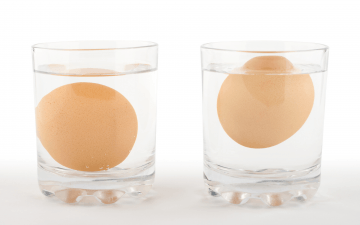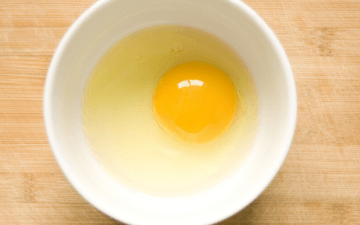
Egg Safety
As an Australian household staple, eggs are an important source of nutrition for the vast majority of people. While egg farmers supply a safe, clean, fresh product, it is possible for eggs to become contaminated by the food poisoning bacteria Salmonella.
The good news is Salmonella is killed instantly at 74oC. So even if you are unlucky enough to get an egg with bacteria on it, the food will become safe by cooking it properly.
In the same way that people know not to eat raw chicken or leave milk out on the bench all day, there are a few simple steps to protect against possible egg-related food poisoning.
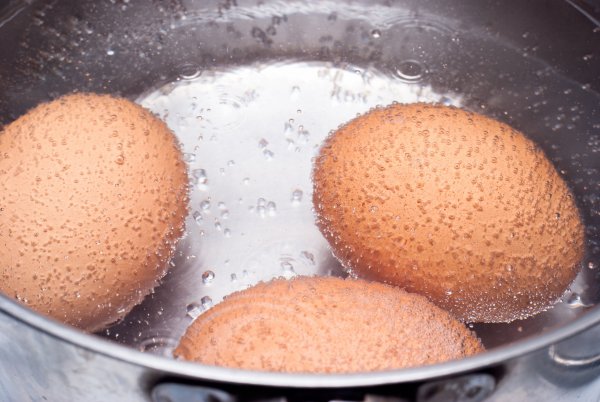
Tips For Egg Eaters
- Cook your eggs until the white sets and the yolk begins to thicken. Soft-boiled eggs are absolutely fine – just make sure the yolk isn’t completely runny.
- Wash your hands with soap and water after handling uncooked eggs so there is no risk of transferring bacteria from the eggshell surface to other foods in the kitchen.
- Don’t buy cracked or dirty eggs and if one cracks while you’re transporting them home, it’s safest to throw it out.
- If you accidentally drop a piece of shell into your egg mixture while preparing food, remove the shell with a clean spoon and cook the dish properly to be on the safe side.
- Store your eggs in the fridge, inside the carton you purchased them in. This will keep the eggs fresh for longer and allow you to check the best before date on the box.
Raw Egg Dishes

Uncooked dishes, sauces and dressings that contain raw or lightly cooked eggs are more susceptible to Salmonella bacteria. This includes:
- Some desserts such as mousses and tiramisu
- Sauces and dressings like hollandaise, fresh mayonnaise and aioli
- Drinks containing raw egg such as egg nog and protein shakes with added raw egg white
There are other foods containing raw eggs to be aware of, like uncooked pasta dough or cake batter that people might eat as they’re making the cooked version.
Is It Ok To Eat Raw Eggs?
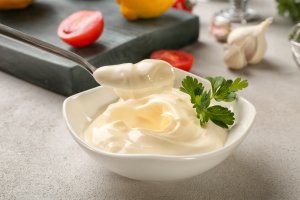
It’s safe to eat things containing raw or lightly cooked eggs providing the risks are understood and appropriate care and attention is given. Most importantly, prepare raw egg foods just before you are going to consume them and if you need to store the dish, refrigerate it immediately at 5°C or below so bacteria cannot grow.
For homemade mayonnaise and aioli, only make small amounts at a time and be sure to use enough vinegar or lemon juice as the acidification makes the product safer. A pH of less than 4.2 should stop any bacteria growth, including Salmonella.
If you’re making a dessert like tiramisu, don’t separate the eggs using the shell halves. This method is fine for things that get cooked but for an uncooked dessert containing raw eggs, it is safest to use an egg separator.
Children, Elderly People and Pregnant Women
Foods that contain raw eggs as an ingredient, that aren’t going to be cooked before being eaten, should not be served to vulnerable people. This includes young children, pregnant women, the elderly, and people with compromised immune systems.
Eggs are absolutely safe for vulnerable people to eat if they are cooked and handled properly. In fact, as a highly nutritious and affordable source of protein, eggs should be included in people’s diets. But cook them properly so the yolk has started to thicken in poached or boiled eggs or the beaten egg mixture has set properly in omelettes or scrambled eggs.
Keeping and Storing Egg Products
Storage time is an important consideration as it takes time for bacteria load to grow to a point where food poisoning becomes a risk. This table below shows safe storage time for a number of common egg products.
PRODUCT | STORAGE |
Cooked eggs or egg products left out of refrigeration for less than 2 hours | Refrigerate and/or use immediately
|
Cooked eggs or egg products left out of refrigeration for 2-4 hours | Use immediately |
Cooked eggs or egg products left out of refrigeration for more than 4 hours | Must be thrown out |
Prepared food containing raw/low-cooked egg whites (e.g. protein smoothie) | Maximum 24 hours storage at refrigerated temperature (under 5oC) |
Prepared food containing raw/low-cooked eggs yolks (e.g. mayonnaise, aioli) | Maximum 24 hours at refrigerated temperature (under 5oC) |
Hard-boiled eggs | Hard-boiled eggs should be refrigerated within 2 hours of cooking and used within 7 days |
Powdered egg | Powdered egg should be stored in a dry, cool area. Once reconstituted it must be refrigerated and then used that day. |
Leftover meals containing eggs | Egg-containing leftovers (e.g. Pad Thai or Spaghetti Carbonara) refrigerated and eaten within 3 days |
Quiche or frittata | Refrigerate for no more than 3 days |
Freezing Eggs
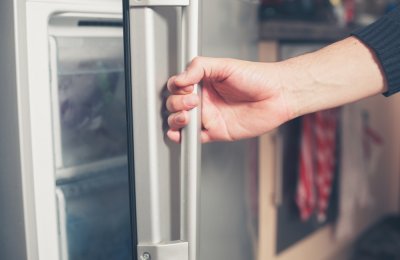
Many egg products can be frozen, defrosted and eaten but it’s important to know that the freezing process won’t kill Salmonella if the food is already contaminated. It’s therefore important to know the state of the food at the point that it goes into the freezer.
If you cook a frittata or fried rice with egg in it and freeze the leftovers the same day, it will be safe to defrost 2-3 months later, reheat to at least 60oC, and eat. But if you freeze a five-day old serve of fried rice that has already started to grow bacteria, freezing it will not make it safe to eat at a later date.
Leftover egg whites can be easily frozen and thawed out for use at a later date. But as with leftover food, only freeze egg whites that are within their use by date.
Frequently Asked Questions
Is It Ok To Eat Raw Eggs?
It’s safe to eat things containing raw or lightly cooked eggs providing the risks are understood and appropriate care and attention is given.
Can Children, Elderly People and Pregnant Women Eat Raw Eggs?
Foods that contain raw eggs as an ingredient, that aren’t going to be cooked before being eaten, should not be served to vulnerable people. This includes young children, pregnant women, the elderly, and people with compromised immune systems.
Can You Freeze Eggs?
Many egg products can be frozen, defrosted and eaten but it’s important to know that the freezing process won’t kill Salmonella if the food is already contaminated.
Related Articles

How to Tell If Eggs Are Off
How many times have you cracked an egg into a bowl of other ingredients, only to question whether the egg has gone bad or not?

Can You Eat Raw Eggs?
Ever since Rocky started guzzling eggs in the 1976 classic, raw eggs have been a popular food among bodybuilders and athletes. Despite this, many non-athletes are hesitant about consuming uncooked eggs because of the risk of food poisoning.

Cooking Tips and Tricks
We've done the hard work for you by collecting the best tips and tricks from our partners to bring you the ultimate guide for nailing every meal on any occasion.
Want to see what an egg farm looks like? Take this interactive 360 degree tour to see how eggs are produced in Australia.
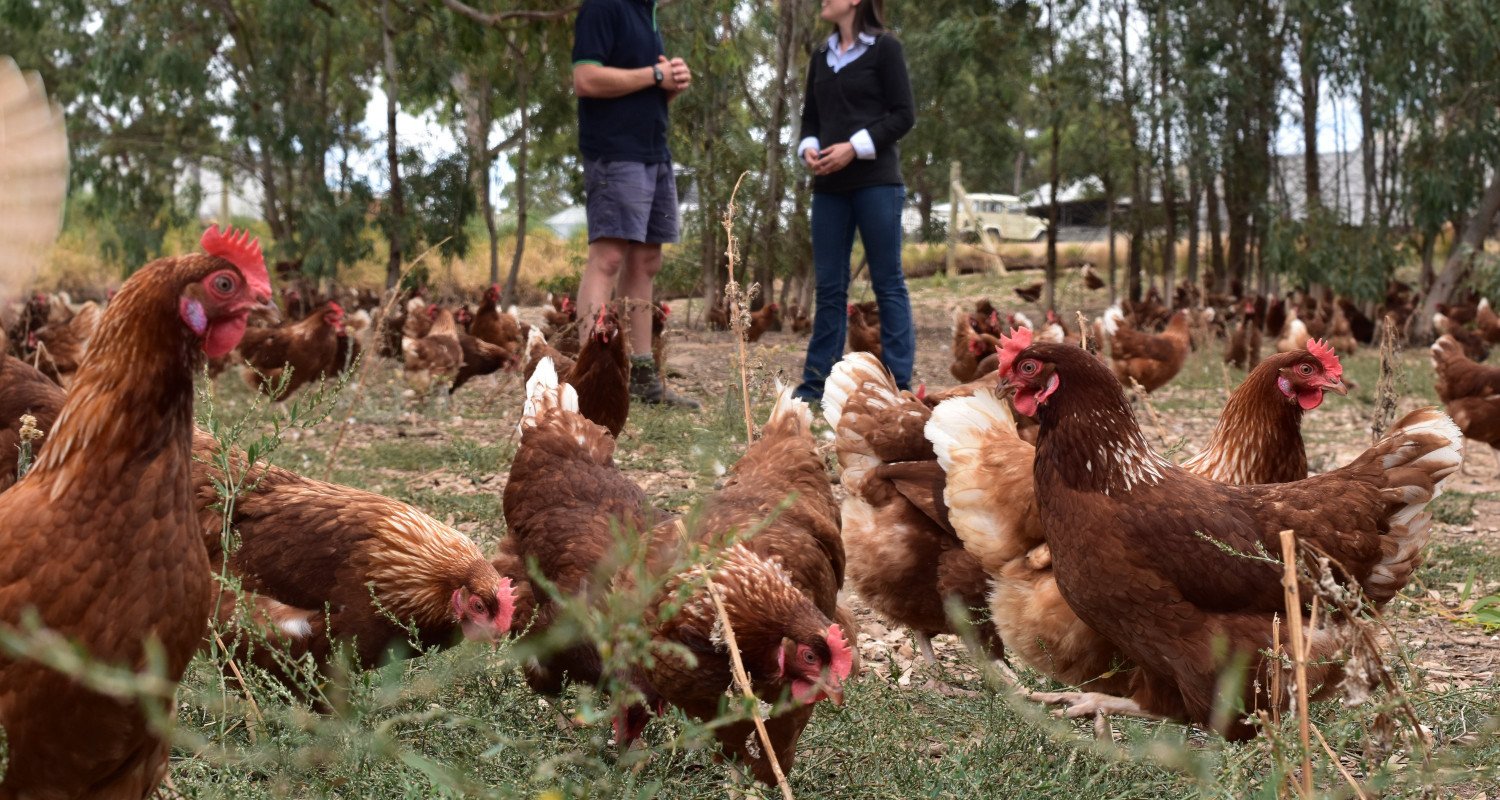
 >
> 